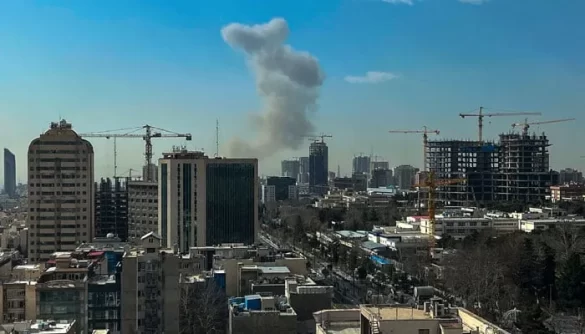Cabinet Endorses Controversial Gaza Strategy
Israel’s political and security cabinet has approved a contentious plan to place Gaza City under full military control. The decision came just hours after Prime Minister Benjamin Netanyahu reiterated his government’s intention to “eliminate Hamas completely” and extend Israeli control over the entire Gaza Strip.
According to an international news agency, Netanyahu stated in a televised interview that regaining full control of Gaza was the only viable way to neutralize Hamas and ensure the release of Israeli hostages. A statement from the Prime Minister’s Office confirmed that the Israel Defense Forces (IDF) had been instructed to prepare for an operation aimed at securing Gaza City.
Gaza City’s Strategic Significance
Gaza City is the largest urban area in the northern part of the coastal enclave and serves as a political, economic, and administrative hub. Before the outbreak of the current conflict, it was home to hundreds of thousands of Palestinians and a center for commerce, education, and governance.
Israeli officials argue that under present conditions, no alternative strategy can both defeat Hamas and secure the safe return of captives. They maintain that partial control or indirect engagement would leave Hamas’s command structure intact.
The plan will become operational only after receiving full approval from the entire Israeli cabinet, which is expected as early as Sunday. If implemented, it would mark one of the most significant escalations since the start of Israel’s latest military campaign in Gaza.
Netanyahu’s Justification
Netanyahu has framed the move as essential for Israel’s long-term security. He has argued that without decisive military control, Hamas could regroup and continue attacks against Israeli targets.
The Prime Minister also pledged that humanitarian aid would be delivered to civilians displaced from combat zones. However, rights groups have expressed doubts over whether such aid can be delivered effectively amid intensified fighting.
Humanitarian Concerns
The Gaza Strip has faced severe humanitarian challenges since the start of the war, with casualties mounting daily, including incidents like the 150 killed in 24 hours as Israeli strikes intensify in Gaza, where an ex-national football captain was among the dead. The United Nations and aid agencies have warned of widespread shortages of food, water, and medical supplies.
According to UN figures, over two-thirds of Gaza’s population has been displaced, and critical infrastructure has suffered extensive damage. The latest plan for military control of Gaza City has raised fears among humanitarian organizations that civilian suffering could deepen further.
Hamas Response
The Palestinian resistance movement Hamas has strongly condemned the Israeli cabinet’s decision, describing it as part of “genocide and forced displacement” against Palestinians in Gaza.
In a statement, Hamas accused Netanyahu of placing hostages’ lives at risk for political gain. The group vowed to resist what it called Israel’s “aggression” and promised to continue its military and political opposition to the occupation.
Hamas leaders also claimed that Israel’s plan was unlikely to achieve its stated objectives, arguing that previous large-scale offensives had failed to dismantle the movement’s operational capabilities.
Broader Context of the Conflict
This development comes amid one of the deadliest periods in the decades-long Israeli–Palestinian conflict. The latest escalation began with a Hamas-led attack on Israeli territory, which killed hundreds and resulted in dozens of hostages being taken into Gaza. Israel responded with sustained airstrikes, artillery bombardments, and a ground operation that has devastated much of the enclave.
International actors, including the United States, Egypt, and Qatar, have attempted to mediate ceasefires and hostage exchanges, but these efforts have yielded limited progress.
What Happens Next
If the full cabinet ratifies the plan, Israeli forces could move into Gaza City within days. Analysts warn that such a move would likely trigger intense urban combat, which could result in high casualties on both sides.
Diplomatic observers say the decision will further complicate already strained negotiations for a ceasefire. For civilians in Gaza, the prospect of full military control raises urgent questions about safety, survival, and the possibility of returning home.















